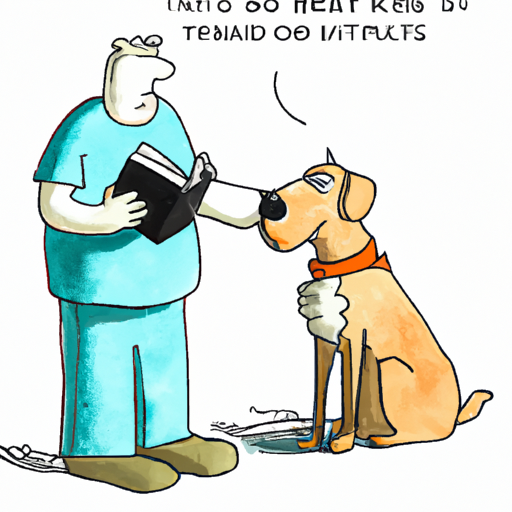Understanding IBS in Dogs
As a caregiver to your furry best friend, you may find yourself puzzled when your dog begins to exhibit unusual symptoms. These could include inconsistent bowel movements, or a change in the frequency or type of stool. You may wonder if these are signs of Irritable Bowel Syndrome (IBS), a condition that affects not only humans but also dogs.
IBS in dogs is a chronic, functional disorder that affects the large intestine, causing a range of symptoms like diarrhoea, constipation, gas, and abdominal pain. Understanding this condition is the first step to managing it effectively.
Identifying the Symptoms
You might be wondering, “What are the signs of IBS in dogs?” Here are some indicators to look out for:
- Frequent Diarrhea or Constipation: These are the most common signs of IBS in dogs. Your dog might also have mucus or blood in their stool.
- Vomiting and Nausea: Dogs with IBS may experience bouts of vomiting, and seem nauseous more often than usual.
- Loss of Appetite and Weight: If your dog is refusing food or losing weight inexplicably, it could be a symptom of IBS.
- Abdominal Pain: Dogs with IBS might exhibit signs of discomfort or pain in their abdomen.
Remember, these symptoms can also be indicative of other health issues, so it’s crucial to seek veterinary advice if you observe these signs.
Potential Causes of IBS in Dogs
Like a detective piecing together clues, figuring out what might be causing your dog’s IBS can help you manage the condition better. While the exact cause of IBS in dogs remains unknown, several factors are believed to contribute to it:
- Stress
- Dietary intolerances
- Infections in the gastrointestinal tract
- Genetic predisposition
It’s worth noting that IBS is not a disease but a syndrome, a collection of symptoms indicating an underlying issue.
Treatment Options for IBS in Dogs
The treatment for IBS in dogs primarily revolves around managing symptoms and improving the quality of their life. Here are some of the commonly recommended approaches:
- Dietary Changes: It’s often beneficial to switch your dog to a high-fiber diet, which can help regulate their bowel movements.
- Stress Management: Minimizing stress in your dog’s environment can alleviate IBS symptoms. This could involve providing a safe space, regular exercise, or even behavioral therapy.
- Medication: In some cases, your vet may prescribe medication to help manage your dog’s symptoms.
| Treatment Options | Effectiveness |
|---|---|
| Dietary Changes | High |
| Stress Management | Moderate to High |
| Medication | Varies |
Frequently Asked Questions (FAQ)
Q: Can IBS in dogs be cured?
A: IBS in dogs is a chronic condition and while it cannot be cured, the symptoms can be managed effectively with the right care and treatment.
Q: Can my dog live a normal life with IBS?
A: Absolutely. With appropriate treatment and management, your dog can lead a happy, active life.
Q: What foods should I avoid feeding my dog with IBS?
A: Foods that are high in fat and hard-to-digest ingredients should be avoided. Always consult with your vet for specific dietary advice.
In Conclusion
As a caregiver, your dog’s health is your top priority. Dealing with IBS can be challenging, but with the right knowledge, treatment, and a whole lot of love, you can help your furry friend live a comfortable and happy life. Always consult with your vet for any health-related concerns.



